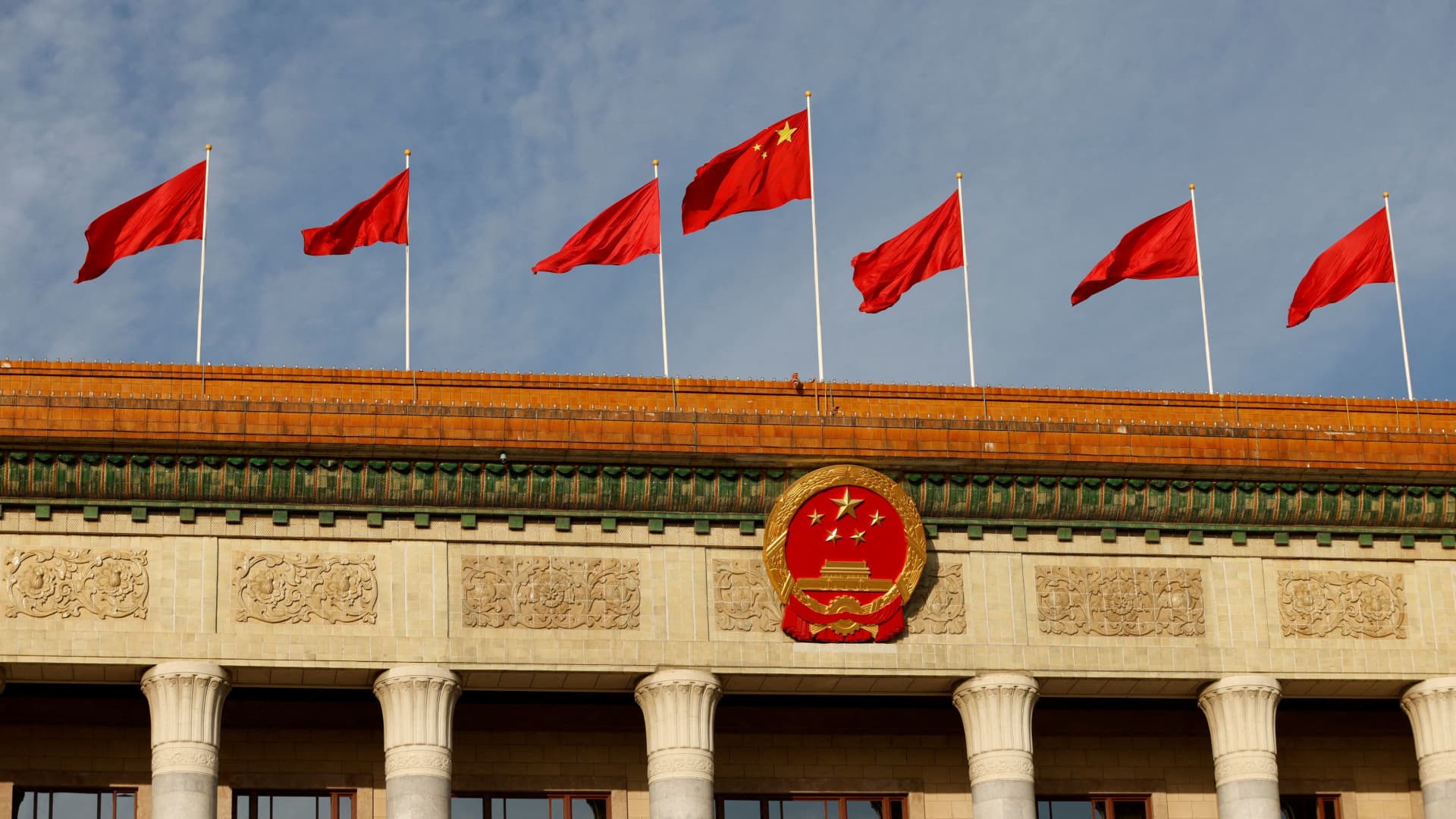BEIJING — China is beefing up national security measures by expanding its protections of state secrets to include a broad category of “work secrets.”
Chinese President Xi Jinping on Tuesday signed an order to formally adopt revisions to a law on “Guarding State Secrets,” according to state media, which reported that legislators passed the updated law at a meeting earlier that day.
The new rules, set to take effect May 1, describe how precautions taken for state secrets should also apply to unclassified information known as work secrets. The law broadly defines work secrets as information that would result in an “adverse impact” if leaked, and said specific measures would be released separately.
That article on work secrets is “the most problematic,” said Jeremy Daum, a senior fellow at Yale Law School’s Paul Tsai China Center.
“There is a risk that individual departments will overzealously identify matters as ‘work secrets,'” Daum said. He also founded the website China Law Translate, which published an unofficial English translation of the new rules.
“This limits the public right to know and also exposes people to potential liability.”
For foreign businesses, it’s the lack of clarity that will remain an unquantified risk to doing business in China.Jeremy DaumYale Law School’s Paul Tsai China Center
While China regularly discloses a certain amount of information about government plans and economic data, the country is often considered more opaque relative to many developed countries.
For example, high-level officials in China have disappeared from public view without formal explanation. Policies, even those that support businesses, don’t always come with specific implementation dates.
Last year, new Chinese laws on espionage and foreign policy included catch-all phrases such as “state secrets” that were left open to interpretation by authorities. Separate rules on what kinds of data foreign businesses in China can send out of the country have yet to provide formal clarity on what qualifies as “important data” and thus subject to export restrictions.
“For foreign businesses, it’s the lack of clarity that will remain an unquantified risk to doing business in China,” Daum said.
“The addition of work secrets, and mention of information that becomes secret only after being aggregated with other information, all creates concern that one might accidentally infringe secret information,” he said.
“In practice however, protection of state secrets has previously been stretched to encompass seemingly benign situations, and foreign businesses have still remained.”
Growing national security concerns
The updated state secrets law comes as Beijing and Washington increasingly cite national security risks when announcing new restrictions for business.
“The new law will add to a general sense among the foreign business community that the Chinese leadership’s preoccupation with national security has made the country’s operating environment more difficult,” said Gabriel Wildau, managing director at consulting firm Teneo.
“China’s economic growth outlook remains the key factor influencing foreign investment decisions, but the secrets law adds another disincentive at the margin,” he said.
The rules designate state secrets as information that, if leaked, “might harm” China’s security and interests in politics, economics, national defense, foreign affairs, technology and other fields, according to China Law Translate.
The law also retained restrictions for overseas travel by people currently or recently working with state secrets.
“I don’t know that their coverage will be meaningfully expanded by the revisions, but the holistic view of national security, a theme running through this law and other recent security laws, has generally placed some barriers on travel,” Daum said.
“A document on counter-espionage precautions released a few years back, required a wide range of persons traveling in their professional capacity to have briefings on security prior to departure.”
The final version of “Guarding State Secrets” has been under government discussion for months.
The revised law provides a “strong legal guarantee for better protecting national sovereignty, security and development interests,” Li Zhaozong, director of the Central Security Office and the National Administration for the Protection of State Secrets, wrote Wednesday in an article published by People’s Daily, the Chinese Communist Party’s official newspaper. That’s according to a CNBC translation.
Li noted how it’s important to disclose information that should be made public, while ensuring confidentiality as needed. The article did not mention work secrets.
China’s National People’s Congress Standing Committee passed the final version of the updated state secrets law after considering a round of revisions in October. The law was initially adopted in 1988.
Daum pointed out that many of the changes in the new rules are “updates for new technology and style changes.”
“The law offers clarity in a few areas, limiting liability of leadership in some instances, and providing compensation for persons whose rights have been limited due to secrecy requirements,” he added.
The National People’s Congress is set to kick off its annual meeting next week, during which the country’s top leadership will release its economic plans and outlook, as well as outline key policies.
